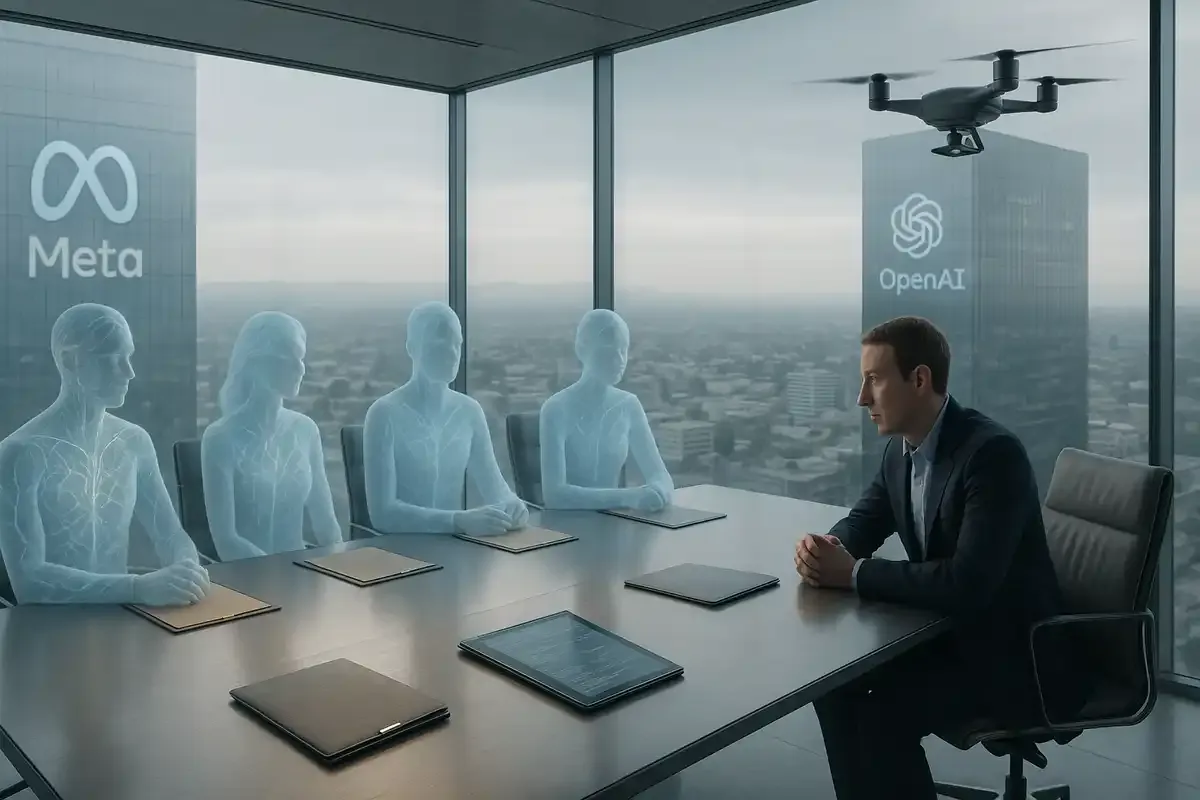💡 TL;DR - The 30 Seconds Version
👉 Meta hired four more OpenAI researchers this week: Shengjia Zhao, Jiahui Yu, Shuchao Bi, and Hongyu Ren.
📊 This follows seven other OpenAI departures to Meta, including three researchers from OpenAI's Zurich office earlier this week.
💰 Zuckerberg offers compensation packages worth up to $100 million, sparking a public dispute with OpenAI CEO Sam Altman.
🎯 The CEO personally reviews research papers and maintains a WhatsApp group called "Recruiting Party" to target elite AI talent.
📉 Meta's hiring spree follows its disappointing Llama 4 AI model launch in April that failed to meet Zuckerberg's expectations.
🚀 The talent war shows how desperate Meta feels in the AI race when paying NBA-level money for researchers.
Meta just hired four more researchers from OpenAI, adding to a growing exodus from the ChatGPT maker as Mark Zuckerberg hunts for AI talent with massive compensation packages.
The latest recruits are Shengjia Zhao, Jiahui Yu, Shuchao Bi, and Hongyu Ren, according to The Information. This follows Meta's hiring earlier this week of three OpenAI researchers from the company's Zurich office: Lucas Beyer, Alexander Kolesnikov, and Xiaohua Zhai.
The hiring spree comes after Meta's Llama 4 AI model launched in April to lukewarm reception. Zuckerberg apparently wasn't happy with the results and decided the solution was to raid his competitors' talent pools.
The $100 Million Question
The recruiting battle has sparked a public spat between the two companies. OpenAI CEO Sam Altman claimed Meta was offering "$100 million signing bonuses" to lure away talent. Meta CTO Andrew Bosworth pushed back, calling Altman "dishonest" and clarifying that while some offers reach nine figures, they're structured as total compensation packages, not upfront signing bonuses.
The distinction matters less than the underlying reality: Meta is throwing serious money at the problem. When your compensation packages rival what NBA superstars make, you're clearly desperate to catch up.
Zuckerberg's Personal Touch
The Meta CEO isn't delegating this effort. He's personally reviewing research papers, reaching out to candidates, and even hosting meetings at his homes in Palo Alto and Lake Tahoe. He maintains a WhatsApp group called "Recruiting Party" with two other executives to discuss hundreds of potential targets.
The approach reflects how small the pool of elite AI researchers really is. These are people with PhDs from Berkeley, Stanford, and Carnegie Mellon who published papers on obscure topics a decade ago that suddenly became the foundation of today's AI breakthroughs.
The Talent Drought Reality
The AI talent shortage has created a strange dynamic. Companies are spending $70 billion on data centers while fighting over a few dozen researchers who can actually make those computers do something useful. Meta's willingness to pay nine-figure packages shows how valuable these individuals have become.
But money alone might not be enough. Some researchers reportedly removed Meta's Llama 4 project from their LinkedIn profiles after its poor reception. Others are comparing notes about Meta's chances in the AI race before deciding whether to jump ship.
A Familiar Silicon Valley Story
This talent war follows a predictable Silicon Valley pattern. When a company falls behind in a crucial technology, it tries to buy its way back into contention by poaching the best people from competitors. Sometimes it works. Often it doesn't.
The question isn't whether Meta can afford these hires—it obviously can. The question is whether assembling a superteam of researchers can close the gap when you're already behind in one of tech's fastest-moving fields.
OpenAI still claims none of its "best people" have left, though that's getting harder to maintain as the departures mount. For now, Altman seems confident that mission and culture matter more than massive paychecks.
Why this matters:
- Meta's desperation signals just how far behind it feels in the AI race—when you're paying NBA money for researchers, you're not winning
- The tiny pool of elite AI talent means every hire reshuffles the competitive landscape, making this less about individual moves and more about whether money can buy innovation
❓ Frequently Asked Questions
Q: How many OpenAI researchers has Meta hired in total?
A: Meta has hired at least 11 OpenAI researchers in recent weeks. This includes the four latest hires plus seven others, including three from OpenAI's Zurich office and Trapit Bansal reported earlier this week.
Q: What exactly is "The List" that Zuckerberg created?
A: "The List" is Zuckerberg's compilation of top AI talent across Silicon Valley. It targets researchers with PhDs from elite schools like Berkeley and Carnegie Mellon who specialize in cutting-edge AI research areas.
Q: Are the $100 million offers really signing bonuses or total compensation?
A: They're total compensation packages, not upfront signing bonuses. Meta CTO Andrew Bosworth clarified this after Sam Altman's comments, explaining the offers include salary, equity, and other benefits structured over multiple years.
Q: Why did Meta's Llama 4 launch disappoint Zuckerberg?
A: The April launch received little fanfare and poor reception. Some Meta researchers reportedly removed Llama 4 from their LinkedIn profiles, distancing themselves from the project after its underwhelming performance compared to competitors.
Q: How does Zuckerberg personally recruit these researchers?
A: He reads research papers to identify talent, reaches out directly to candidates, and hosts meetings at his homes in Palo Alto and Lake Tahoe. He uses a WhatsApp group called "Recruiting Party" with two executives to coordinate efforts.
Q: Who leads Meta's new superintelligence team?
A: Alexandr Wang, the 28-year-old founder of Scale AI. Meta paid $14 billion for a stake in his company to bring him on board, making him one of the most expensive hires in tech history.
Q: How small is the pool of elite AI researchers?
A: Extremely small. The top researchers all know each other, often lived in the same group houses in San Francisco, and many graduated from the same PhD programs that admit less than 1% of applicants.









